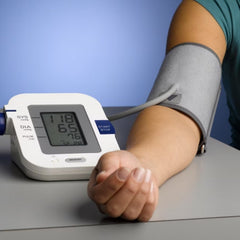Keeping Your Dog’s Heart Healthy: Essential Tips for Prevention and Care
Table of Contents:
- Understanding Heart Disease in Dogs
- Know the Signs of Heart Disease in Dogs
- Tips for Keeping Your Dog's Heart Healthy
- 1. Maintain a Healthy Weight
- 2. Provide a Nutritious, Balanced Diet
- 3. Ensure Regular Exercise
- 4. Prevent Parasite Infections (Heartworms)
- 5. Practice Good Oral Hygiene
- 6. Schedule Regular Vet Checkups
- ZEBORA Fish Oil for Dogs' Heart Health
As pet owners, we want nothing more than to see our dogs live long, healthy, and happy lives. A key factor in ensuring their well-being is maintaining good heart health. Just like humans, dogs are susceptible to heart disease, and it can develop gradually, often without visible symptoms in the early stages. However, the good news is that by being proactive and following essential care guidelines, you can significantly reduce your dog’s risk of heart disease and keep their heart in optimal condition. In this blog post, we’ll explore the signs of heart disease in dogs, how heart disease affects them, and essential tips to maintain a healthy heart for your pet.
Understanding Heart Disease in Dogs
Heart disease in dogs is a serious issue that can affect dogs of all ages and breeds, although certain conditions and breeds may be more predisposed. Some of the most common heart problems in dogs include heartworm disease, valvular disease, and dilated cardiomyopathy (DCM). These conditions can lead to a range of symptoms such as coughing, difficulty breathing, lethargy, and even sudden collapse. Heart disease in dogs can be caused by a combination of genetic predisposition, aging, poor diet, lack of exercise, and external factors like parasites.
Just like us, dogs' hearts work tirelessly to pump blood, deliver oxygen to organs, and maintain proper circulation throughout the body. However, when the heart’s function begins to fail or when it is stressed by diseases like heartworm or high blood pressure, it can lead to severe complications. The good news is that many of these conditions are preventable or manageable with early detection and the right care.
Know the Signs of Heart Disease in Dogs
It’s important for dog owners to be familiar with the signs of heart disease so they can take prompt action. Some of the most common symptoms that may indicate a heart problem include:
- Frequent coughing: This often happens after exercise or at night. Coughing can be a sign that fluid has built up in the lungs, a common issue in dogs with heart disease.
- Difficulty breathing: Shortness of breath or labored breathing could indicate heart failure or other circulatory problems.
- Fatigue and lethargy: If your dog seems to tire easily, is less playful, or avoids activities like walks or fetch, this could be due to a reduced ability to get oxygen-rich blood throughout the body.
- Swollen abdomen: Fluid retention in the abdomen can be a sign of heart failure. This condition may cause your dog to appear bloated or distended.
- Pale or blue gums: Poor circulation or oxygen deprivation can result in gums that appear pale or even slightly blue in color.
- Unexplained weight loss: Dogs with heart disease may lose weight even though their diet and exercise routine have not changed.
If you notice any of these symptoms, it’s important to consult with your veterinarian as soon as possible for an accurate diagnosis and treatment options.
Tips for Keeping Your Dog's Heart Healthy
Maintaining your dog’s heart health involves a combination of good habits, preventive care, and regular checkups. Here are some essential tips to keep your dog’s heart healthy:
1. Maintain a Healthy Weight
Maintaining an ideal weight for your dog is one of the most effective ways to reduce the strain on their heart. Obesity can lead to high blood pressure, diabetes, and increased stress on the heart. For dogs, carrying excess weight means the heart has to work harder to pump blood, which increases the risk of developing heart disease.
To help your dog maintain a healthy weight, be mindful of their portion sizes and avoid overfeeding. Provide a balanced diet that suits their age, breed, and activity level. You can also consult with your veterinarian for advice on a weight management plan if necessary.
2. Provide a Nutritious, Balanced Diet
A well-balanced diet is essential not only for weight control but also for overall heart health. Make sure your dog’s food is rich in nutrients that support heart function, including high-quality proteins, omega-3 fatty acids, and antioxidants. Omega-3s, for example, have anti-inflammatory properties and help reduce the risk of cardiovascular disease by supporting healthy blood vessels and reducing inflammation.
Avoid feeding your dog unhealthy snacks or foods with high levels of sodium and preservatives. Some commercial dog foods, especially those with artificial additives or excessive sodium, can contribute to heart problems over time. Opt for high-quality dog food that includes real meat, vegetables, and beneficial nutrients that support heart health.
3. Ensure Regular Exercise
Exercise is not only important for keeping your dog fit and trim, but it’s also essential for cardiovascular health. Regular physical activity helps improve circulation, maintain a healthy weight, and strengthens the heart muscle. The amount of exercise your dog needs depends on their breed, age, and fitness level.
For most dogs, daily walks, runs, or playtime in the yard can provide the necessary physical activity. Older or less active dogs may benefit from shorter, more gentle walks, while younger, more energetic dogs can handle longer or more vigorous exercise sessions. Always check with your vet before starting a new exercise routine, especially if your dog has pre-existing heart conditions.
4. Prevent Parasite Infections (Heartworms)
Heartworm disease is a serious and potentially fatal condition that affects dogs' hearts and lungs. Heartworms are transmitted through mosquito bites and can grow up to 12 inches long, causing severe damage to the heart, lungs, and blood vessels. It’s essential to prevent heartworm infections with monthly heartworm preventatives, which are available in oral or topical forms.
Even if your dog is primarily indoors, heartworms can still be a risk, so it’s important to keep up with preventive treatments year-round. Consult your veterinarian to choose the best heartworm prevention plan for your dog.
5. Practice Good Oral Hygiene
Many pet owners don’t realize that oral health is closely linked to heart health. Poor dental hygiene, including the buildup of plaque and tartar, can lead to periodontal disease, which may increase the risk of heart disease. Bacteria from the mouth can enter the bloodstream and cause inflammation in the heart, contributing to conditions like endocarditis (infection of the heart’s inner lining).
Brushing your dog’s teeth regularly, providing dental chews, and scheduling professional cleanings with your vet can help prevent dental disease and protect your dog’s heart.
6. Schedule Regular Vet Checkups
Regular veterinary checkups are essential for monitoring your dog’s heart health. Even if your dog seems healthy, it’s important to have them examined by a vet at least once a year, especially as they age. During a routine exam, the vet will check your dog’s heart rate, listen for any abnormal sounds, and look for signs of heart problems.
If your dog is at higher risk for heart disease (due to age, breed, or pre-existing health conditions), your veterinarian may recommend more frequent exams or additional heart-specific screenings like blood pressure tests, EKGs, or chest X-rays.
ZEBORA Fish Oil for Dogs' Heart Health

Boost your dog's health with Zebora Biotech's Fish Oil Collection, rich in Omega-3 fatty acids. Our premium fish oil supplements are specifically designed to support your pet’s heart health, while also improving coat and skin condition and promoting joint mobility. Sourced from high-quality, sustainable ingredients, these supplements provide the vital nutrients dogs need at any stage of life. Whether you're looking to enhance your dog’s cardiovascular health, reduce inflammation, or improve overall well-being, our Fish Oil collection offers a natural and effective solution. Discover the heart-healthy benefits of Omega-3 and help your dog lead a longer, healthier, and happier life.





